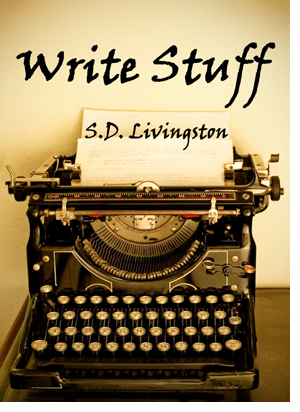 One man’s trash, as the saying goes, is another man’s treasure. I usually think of things like discarded bottles and old radios when I hear that, but there’s another treasure trove being tossed around casually these days: words. Specifically, the words people contribute to online comment sections and Twitter feeds. Most of us don’t give much thought to where those words end up once the conversation’s finished, but others are paying close attention. And your words could end up making them very rich.
One man’s trash, as the saying goes, is another man’s treasure. I usually think of things like discarded bottles and old radios when I hear that, but there’s another treasure trove being tossed around casually these days: words. Specifically, the words people contribute to online comment sections and Twitter feeds. Most of us don’t give much thought to where those words end up once the conversation’s finished, but others are paying close attention. And your words could end up making them very rich.
It’s an interesting dichotomy, really. On the one hand we’ve come to expect our content to be ridiculously cheap or, better yet, free. Online newspapers face resistance to paywalls, aggregator sites flourish, and readers balk at shelling out a couple of bucks for full-length e-books. All signs point to the death of any value in the written word?until you take a closer look at the other side of that coin.
Tweets from Tahrir is a good example. Published on the heels of the protests in Egypt, the book is exactly what the title says: a collection of Tweets by those on the ground during the revolution. Individually, a 140-word post doesn’t have much monetary worth. But taken together, a collection of them clearly has value even though, as one article points out, none of the book’s ?authors? will receive any royalties. To be fair, the publisher approached the contributors directly and asked whether they wanted to be included?but as the article also notes, an equally legal scenario would have been for Twitter itself to sell the Tweets.
And that raises an intriguing question about comment sections. Visit the fine print of just about any major news site (like The Globe and Mail‘s) and you’ll find the same thing: by adding to the discussion, you automatically grant ?a world-wide, perpetual, royalty-free, irrevocable and non-exclusive right and license to use, copy, adapt, transmit, communicate, publicly display and perform, distribute and create compilations and derivative works from such submitted materials.?
That snippet limits The Globe‘s use to ?publishing and promoting such materials in connection with the Forum or other Service through which the materials were submitted or generated,? but posters also agree to waive the moral rights to their comments. A little further on, the terms allow for ?all letters, articles, comments, and other material submitted for publication? to be ?published, distributed and stored by The Globe . . . without compensation to the author.?
The Globe and Mail‘s policy is not unusual. You can find similar terms at the National Post and other online papers. Some media outlets go even further and lay claim to using commenter’s ideas without compensation.
Clearly, in spite of all the free content floating around out there, the written word still has value. If it didn’t, corporations wouldn’t be so eager to claim control over the ones that millions of us post online every day. Comments may be free, but don’t be surprised if somebody, somewhere, is already thinking of ways to make yours pay off.


